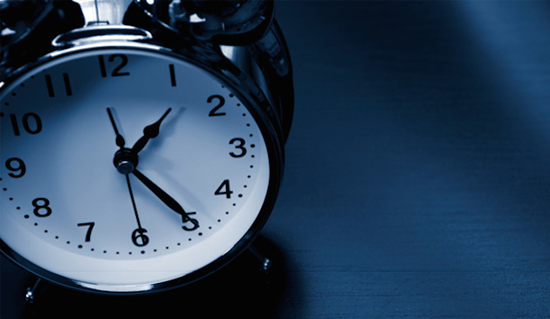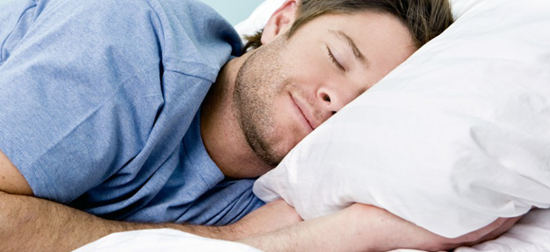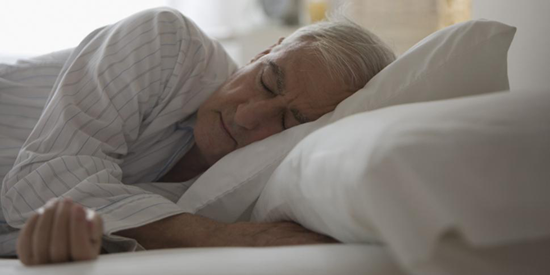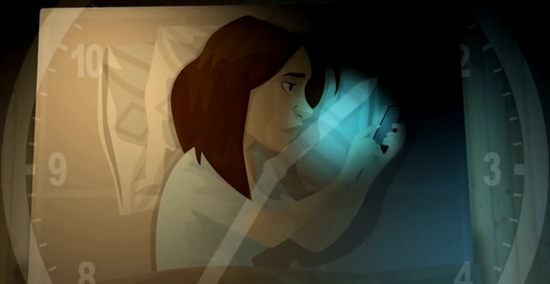
Rip van Winkle was an idle man, who, as the story goes, took a walk in the woods to catch a break from his wife, drank a stranger's brew and proceeded to fall asleep for 20 years. You, however, can't sleep for 20 years (no matter what you may be trying to escape). Nor can you go without. Not only does a lack of sleep kill your brain cells, it could also eventually kill you.
But what of the more subtle aspects of sleep science? For example, did you know that you yawn less when you're cold? And did you know that counting sheep won't help you fall asleep, and that it might actually keep you awake longer? Let's get to the bottom of some of the most common myths about sleep, including how many hours are ideal.
10. Eight Hours From Dusk to Dawn Is Optimal for Everyone
Although 40 percent of us are falling short, it won't surprise you that it's true, on average, that most adults should aim for about eight hours of sleep, give or take an hour [source: Jones]. How much sleep we need varies based on age: If you're between age 18 and 64, for instance, your goal should be between seven and nine hours of sleep, and anyone over 65 should try for seven to eight hours.
Those who haven't reached adulthood yet need more than eight hours. Teenagers, for example, need eight to 10 hours, and kids ages 6 to 13 should be getting between nine and 11 hours per night. And when it comes to the little ones, we're looking at between 10 and 17 hours depending on age (3- to 5-year-olds need 10 to 13 hours; 1- to 2-year-olds need 11 to 14 hours; infants ages 4 to 11 months need 12 to 15 hours; and new-borns, between 14 and 17 hours) [sources: NSF, Hischkowitz, et al].
It's important to remember, though, that the recommended guidelines may not be appropriate for everyone, and catching up with the sandman in small blocks throughout your day rather than spending the night with him might work out better for some people. Sleeping eight hours through the night is called monophasic sleep, but not everyone is a monophasic sleeper. Leonardo da Vinci, for example, is a famous example of a polyphasic sleeper, which means he slept in a few segments throughout the day rather than all at once. In fact, monophasic sleep cycles are a relatively new thing for humans, changing around the time that electricity became commonplace. Most animals are polyphasic sleepers, and historically humans were once naturally biphasic sleepers, meaning we slept for four hours, spent a few hours awake, and returned to sleep for another four hours [source: Campbell and Murphy].
9. Some People Need Only a Few Hours a Night
Image via imgkid.com
It's true that there are some people who need just a few hours of sleep each night. However, it's probably not you or me. The numbers are quite small; only an estimated 1 to 3 percent among us can function just fine with only five hours of sleep each night. Short sleepers, nicknamed the "sleepless elite" tend to run in families; it's not that they've somehow trained themselves to need less sleep, though (we'll get to that later). Rather, they carry a gene variation, hDEC2, that allows them to go without, and with no apparent consequence [source: Beck]. The rest of us, well, we just stopped noticing how tired we are.
Too little sleep, though, makes you more than just drowsy. Sleep deprivation is associated with some pretty severe health problems, including obesity, heart disease and diabetes. Get too little sleep - five hours or fewer per night - and you double your risk of death from all causes [source: Peri]. And once you've been awake for 18 hours, you may be more than just a little tired. Get behind the wheel of your car at that point, for example, and you could be mistaken for driving under the influence.
8. You Can Train Your Body to Need Less Sleep
Image via Prevention.com
About half of American adults say they don't get enough sleep (only 30 percent report that they get, on average, at least six hours of sleep every day). Many of us rely on coffee or another source of caffeine to stay awake, and fewer of us take naps. And at least 45 percent of men polled believe that people can train themselves to need less sleep [source: Better Sleep Council, CDC].
Sorry guys, but we can't. Sleep isn't a waste of time, you won't sleep when you're dead and you can't train your body to function just fine on very little sleep. During combat, for instance, soldiers may need to remain awake for long periods of time, unable to get several hours at one time, perhaps needing to stay awake for 48 hours or longer. Research conducted by the Walter Reed Army Institute of Research found that despite all attempts, humans are unable to adapt to getting fewer hours of shut-eye than their body requires every day [source: Szivos]. Each of us has our own sleep requirement, and no matter how hard you try, your body isn't going to change its mind about that. You may stop noticing the effects of your sleep deprivation after a while, but less sleep is associated with heart disease and high blood pressure in addition to depression, diabetes, weight gain and even premature death.
7. You Can Catch up on Missed Sleep by Sleeping Extra Hours Later
Image via Men’s Fitness
Although you may feel more refreshed after indulging in a long night of sleep after a week of early mornings, recovering from your sleep debt - the difference between the hours of sleep your body requires and the number of you're actually getting - takes time, and definitely more than just one night of good sleep. If, for instance, your sleep patterns are similar to the average American adult, you're sleeping 6.8 hours on weekdays and a little more, 7.4 hours, on weekend nights. If your sleep goal is 8 hours a night, your sleep debt ends up totalling more than two weeks every year [source: Webster].
Eventually, you may settle that debt if it's a short-term deficit (one all-nighter, for example). But in the case of long-term sleep debt, you might not be able to. Even if you do repay a short-term loss of sleep, you're still at an increased risk of developing the health problems associated with sleep deprivation [source: Cohen, et a].
6. Sleep Gives Your Brain Some Rest
Image via BBC
Your brain doesn't take the night off when you're asleep; it's actually pretty busy while you doze. This is when your brain forms new memories. It also links memories with older memories and consolidates memories for long-term storage. And it does the same with motor skills, too, so if you're learning a new dance or want to improve your swing, don't skimp on sleep - it's when you develop muscle memory. While you're not actually physically making the movements of that new dance while you snooze, you're processing complex information and even making decisions - or at least making the links between information that's important to something in your waking life.
And, as if that's not enough to keep your brain busy while you catch some Zs, this is also the time when your brain takes out the trash. Literally, it's when the body's glymphatic system gets to work, sending cerebrospinal fluid flowing through the brain and removing waste products [source: Xie, et al]. If the brain isn't able to clean up, it leaves you at risk for developing neurodegenerative diseases such as Alzheimer's and Parkinson's.
5. As You Get Older, You Need Less Sleep
Image via The Huffington Post
Sleep experts recommend that older adults aim for seven to eight hours of sleep every night, which, as you can see, is not much different than the seven to nine hours recommended for young and middle-aged adults [source: Hirshkowitz, et al]. You don't need less sleep as you get older, although your sleep habits are likely to shift with age. Seniors frequently report that while they don't regularly sleep through each night, they rely on a daytime nap (or two).
As you age, there are also more things getting between you and the sandman. As the years pass, your risk of developing sleep problems increases, including common disorders such as insomnia, restless leg syndrome and sleep apnea. Often the cause of lost sleep in later years may look like a bout of transient insomnia, for example, but your sleep complaint may actually be caused by other health problems and chronic conditions such as arthritis, depression or GERD (gastroesophageal reflux disorder).
4. Stay for a Nightcap: Alcohol Helps You Sleep
About 20 percent of Americans pour themselves a nightcap in an effort to get a good night's sleep, and if you're one of them, that drink you're having before bed may actually be sabotaging, not helping, the quality of your snooze [source: Thakkar, et al].
Yes, drinking an alcoholic beverage or two before bed will help you fall asleep faster. That's because alcohol has a sedative effect on the body's central nervous system - but there's a catch. If you're three sheets to the wind when you hit the sheets, that alcohol appears to have an effect on what's known as your brain's sleep-wake system. Through this system, your brain regulates and balances when you feel sleepy or awake, in addition to regulating your sleep throughout the night.
There are two sleep cycles: non-rapid eye movement (NREM) and rapid eye movement (REM). We spend about 80 percent of our sleep in NREM sleep; NREM sleep, which is dreamless, is broken into multiple stages, including deep sleep when the body is in restoration mode [source: Robinson]. It's the second piece of your good night's sleep, REM sleep, when you'll really feel the brunt of the booze. Once your body metabolizes the alcohol you drank, your sleep becomes restless, and you may wake early or multiple times during the night, and you may find it difficult to fall back asleep [source: Thakkar, et al].
To help avoid the sleep-related side effects of alcohol, which may include headache, night sweats, nightmares and snoring (in addition to a growing reliance on that evening cocktail), cap yourself at one to two drinks and don't drink alcohol within three hours of turning in [source: AASM].
3. Tryptophan: Turkey Makes You Tired
Image via YouTube
Here's the thing about turkey: Everyone knows that turkey contains tryptophan, and everyone knows that tryptophan will leave you snoring on the sofa. Well, at least we get one out of two correct. Let's break it down.
Yes, turkey does contain tryptophan. But, then, so does cheddar cheese. In fact, an ounce of cheese contains more tryptophan than an ounce of turkey - and we've yet to hear anyone complaining how tired they are after ordering the cheese plate [source: Wanjek].
Tryptophan is an amino acid your body uses as a building block for producing serotonin, a neurotransmitter that helps to regulate your mood, your appetite and your sleep cycle, in addition to melatonin, a hormone that also regulates sleep. It does play a role in making us sleepy, but here's the thing: You're not ingesting enough tryptophan, nor does enough of it reach your brain after a meal - even a big holiday meal - to overtake you with the urge to nap [source: Young].
As a sleep aid, tryptophan is thought to work most effectively when taken as a supplement on an empty stomach - and in much higher doses than you could eat, even with Thanksgiving seconds (and thirds). While a 4-ounce (113-gram) serving of turkey contains 350 milligrams of tryptophan, the supplements popular in the 1980s contained levels as high as 2,000 milligrams [source: Mikkelson]. But a better sleep-aid snack than cheddar or Swiss is one that contains 1 ounce (30 grams) of carbohydrates [source: Zamosky].
2. Screen Time Is a Good Way to Ease into Sleep
Image via YouTube
Ninety-one percent of Americans adults own a PC or laptop, and almost half own a tablet. And then there are our phones. Eighty percent of American adults own a cell or smartphone; one-third say they can't even begin to imagine living without them. And even if you don't consider yourself a smartphone addict, we're all using them a lot more; in 2014, on average, we used our smartphones 45 percent more every month than we did in 2013 [sources: GlobalWebIndex, Pew, Cisco]. What are we doing with our tech? Mostly we text, but we also browse the Web, play games and use social media - more than we actually use the phone as a phone.
While staying connected may feel good, nearly half of us sleep with our phone (and that rises to as many as 74 percent for people under the age of 34), and the consequences of that habit aren't so good at all [Source: Pew, Lookout].
You may enjoy falling asleep watching a movie, catching up on social media or reading an e-book, but the devices you use to do those things all emit short-wavelength enriched light - blue light. Research shows that light exposure disrupts the body's circadian clock and reduces the levels of melatonin produced by the pineal gland. Reading on an iPad before bed, for instance, is shown to delay natural circadian rhythm by more than one hour [source: Chang, et al].
The best advice? Wait until the morning to check your phone - which 80 percent of us already do as soon as we wake up [source: Stadd].
1. Yawning Means You're Bored and Tired
Image via Commercial Observer
You and I, on average, will each yawn eight times today [source: Koren]. While one or two of those yawns may be to pop your ears after a flight or another change in air pressure, scientists can't yet fully explain for certain why we yawn - or why yawning is contagious. But they have ruled out the theory that yawns mean you're tired. Yawning also won't help wake you up by increasing the oxygen levels in your bloodstream.
Hippocrates theorized that yawning was the body's way of releasing noxious air when body temperature began to rise. Later theories emerged that yawning was the body's way of increasing the level of oxygen in the blood supply [source: Robson]. Currently, there are two leading theories as to why we yawn. One is a social explanation: Yawning is a primitive form of communication (although what we're trying to communicate to each other remains unclear). The other explanation is that yawning is a thermoregulatory function that cools the brain when its temperature rises as little as 0.18 degree Fahrenheit (about 0.1 degree Celsius). Humans do yawn more frequently when they're in a warm environment and when feeling anxious or stressed [source: Gallup].
Author's Note: As it turns out, we spend a lot of time on using our phone, playing games, texting, using social media. When you total up all the hours, it adds up to be about 23 days out of the year. That's 23 days of looking at a small screen. I'm not judging. I like my phone just as much as anyone else. But during my research I also discovered that there are apps that can help reduce the problem that light causes on our sleep cycle. They work by filtering out blue light and are available for all your devices, from phone to tablet to computer. And they also come in physical filters. So if you must sleep with your phone, it can't hurt to try out a filter.
Related Articles:
Article Sources:
1. American Academy of Sleep Medicine. "Sleep Myths: Separating Fact From Fiction." Oct. 29, 2012. (Feb. 6, 2015)
2. Beck, Melinda. "The Sleepless Elite." The Wall Street Journal. April 5, 2011. (Feb. 6, 2015)
3. Beres, Damon. "Reading on a Screen Before Bed Might Be Killing You." The Huffington Post. Dec. 31, 2014. (Feb. 6, 2015)
4. Campbell, Scott S. "The nature of spontaneous sleep across adulthood." Journal of Sleep Research. Vol. 16, No. 1. Pages 24032. March 2007. (Feb. 6, 2015)
5. CDC. "Insufficient Sleep Is a Public Health Epidemic." Jan. 13, 2014. (Feb. 6, 2015)
6. Chang, Anne-Marie. "Evening Use of Light-emitting eReaders Negatively Affects Sleep, Circadian Timing, and Next-morning Alertness." Proceedings of the National Academy of Sciences of the United States of America (PNAS). Vol. 112. No. 4. Pages 1232-1237. Nov. 26, 2014. (Feb. 6, 2015)
7. Cisco. "Cisco Visual Networking Index: Global Mobile Data Traffic Forecast Update, 2014–2019." Feb. 3, 2015. (Feb. 6, 2015)
8. Cohen, D.A., et al. "Uncovering Residual Effects of Chronic Sleep Loss on Human Performance." Science Translational Medicine. Vol. 2. No. 14. Page 14ra3. Jan. 13, 2010. (Feb. 6, 2015)
9. Colzato, L.S. "Tryptophan Promotes Interpersonal Trust." Psychological Science. Vol. 24. No. 12. Pages 2575-2577. December 2014. (Feb. 6, 2015)
10. DeNoon, Daniel J. "Why We Yawn." WebMD. Sept. 23, 2011. (Feb. 6, 2015)
11. Duggan, Maeve. "Cell Phone Activities 2013." Pew Research Centre. Sept. 19, 2013. (Feb. 6, 2015)
12. Ellenbogen, Jeffrey M. et al. "Human Relational Memory Requires Time and Sleep." PNAS. Vol. 104. No. 18. May 1, 2007. (Feb. 6, 2015)
13. Gallup, Andrew C. "Yawning As a Brain Cooling Mechanism: Nasal Breathing and Forehead Cooling Diminish the Incidence of Contagious Yawning." Evolutionary Psychology. Vol. 5. No. 1. Pages 92-101. 2007. (Feb. 6, 2015)
14. Global Web Index. "GWI Device: Q3 2014." Jan. 5, 2015. (Feb. 6, 2015)
15. Greer, Mark. "Strengthen Your Brain by Resting It." Monitor on Psychology. Vol. 35, No. 7. Page 60. July/August 2004. (Feb. 6, 2015)
16. Harvard Medical School: Division of Sleep Medicine: Healthy Sleep. "Changes in Sleep with Age." Dec. 18, 2007. (Feb. 6, 2015)
17. Harvard Health Publications: HEALTHbeat. "Repaying Your Sleep Debt." Aug. 1, 2007. (Feb. 6, 2015)
18. Harvey, A.G. and S. Payne. "The Management of Unwanted Pre-sleep Thoughts in Insomnia: Distraction with Imagery Versus General Distraction." Behaviour Research and Therapy. Vol. 40. No. 3. Pages 267-277. March 2002. (Feb. 6, 2015)
19. Hirschkowitz, Max et al. "National Sleep Foundation's Sleep Time Duration Recommendations: Methodology and Results Summary." Sleep Health. Jan. 14, 2015. (Feb. 6, 2015)
20. Jones, Maggie. "How Little Sleep Can You Get Away With?" The New York Times Magazine. May 1, 2011. (Feb. 6, 2015)
21. Lookout. "Mobile Mindset Study." 2012. (Feb. 6, 2015)
22. Kim, Meeri. "Blue Light From Electronics Disturbs Sleep, Especially for Teenagers." The Washington Post. Sept. 1, 2014. (Feb. 6, 2015)
23. Koren, Marina. "Why Do We Yawn and Why Is It Contagious?" Smithsonian. June 28, 2013. (Feb. 6, 2015)
24. Kouider, Sid et al. "Inducing Task-Relevant Responses to Speech in the Sleeping Brain." Current Biology. Vol. 24. No. 18. Pages 2208-2214. Sept. 22, 2014. (Feb. 6, 2015)
25. Massen, Jorg J. M. et al. "A Thermal Window for Yawning in Humans: Yawning As a Brain Cooling Mechanism." Physiology & Behaviour. Vol. 130. Pages 145-148. May 10, 2014. (Feb. 6, 2015)
26. Mikkelson, Barbara. "The Big Sleep." Snopes. Nov. 25, 2014. (Feb. 6, 2015)
27. Mobile Statistics. "23 Days a Year Spent On Your Phone." (Feb. 6, 2015)
28. National Children's Hospital. "Sleep in Adolescents (13-18 Years)." (Feb. 6, 2015)
29. National Sleep Foundation. "Expert Panel Recommends New Sleep Durations." Feb. 2, 2015. (Feb. 6, 2015)
30. National Sleep Foundation. "Myths - and Facts - About Sleep." (Feb. 6, 2015)
31. National Sleep Foundation. "What Happens When You Sleep?" (Feb. 6, 2015)
32. Payne, J.D. et al. "Learning and Memory: A Comprehensive Reference." Cognitive Psychology of Memory. Vol. 2. Pages 663-685. 2008. (Feb. 6, 2015)
33. Payne, Jessica D. "Learning, Memory, and Sleep in Humans." Sleep Medicine Clinics. Vol. 6. No. 1. Pages 15-30. March 2011. (Feb. 6, 2015)
34. Peri, Camille. "10 Things to Hate About Sleep Loss." WebMD. (Feb. 6, 2015)
35. Pew Research Centre. "Mobile Technology Fact Sheet." January 2014. (Feb. 6, 2015)
36. Robinson, Jennifer. "What Are REM and Non-REM Sleep?" WebMD. Oct. 22, 2014. (Feb. 6, 2015)
37. Robson, David. "One of science's most baffling questions? Why We Yawn." BBC. Aug. 12, 2014. (Feb. 6, 2015)
38. Rockoff, Jonathan D. "The Real Reason We Yawn." The Wall Street Journal. Aug. 19, 2014. (Feb. 6, 2015)
39. Shoup-Knox, Melanie L. et al. "Yawning and Stretching Predict Brain Temperature Changes in Rats: Support for the Thermoregulatory Hypothesis." Frontiers in Evolutionary Neuroscience. Sept. 24, 2010. (Feb. 6, 2015)
40. Smith, Michael W. "Living With Insomnia: Get a Good Night's Sleep." WebMD. May 8, 2014. (Feb. 6, 2015)
41. Springen, Karen. "7 Myths About Sleep." WebMD. (Feb. 6, 2015)
42. Stadd, Allison. "79 Percent of People 18-44 Have Their Smartphones with Them 22 Hours a Day [STUDY]." Adweek. April 2, 2013. (Feb. 6, 2015)
43. Szivos, Ryan. "Probing Question: Can you train yourself to need less sleep?" Penn State. Sept. 5, 2006. (Feb. 6, 2015)
44. Thakkar, Mahesh M. et al. "Alcohol Disrupts Sleep Homeostasis." Alcohol. Nov. 11, 2014. (Feb. 6, 2015)
45. The Better Sleep Council. "Survey: Americans Know How to Get Better Sleep - But Don't Act On It." (Feb. 6, 2015)
46. Wanjek, Christopher. "Thanksgiving Myth: Turkey Makes You Sleepy." Live Science. Nov. 20, 2007. (Feb. 6, 2015)
47. Webster, Molly. "Can You Catch Up on Lost Sleep?" Scientific American. May 6, 2008. (Feb. 6, 2015)
48. Williams, Ray. "Nightly 8-hour Sleep Isn't a Rule. It's a Myth." Psychology Today. March 3, 2014. (Feb. 6, 2015)
49. Xie, Lulu. "Sleep Drives Metabolite Clearance from the Adult Brain." Science. Vol. 342. No. 6156. Pages 373-377. Oct. 18, 2013. (Feb. 6, 2015)
50. Young, Simon N. "How to Increase Serotonin in the Human Brain Without Drugs." Journal of Psychiatry and Neuroscience. Vol. 32. No. 6. Pages 394-399. November 2007. (Feb. 6, 2015)
51. Zamosky, Lisa. "The Truth About Tryptophan." WebMD. Nov. 18, 2009. (Feb. 6, 2015)
52. Zhang, Jing. "Extended Wakefulness: Compromised Metabolics in and Degeneration of Locus Ceruleus Neurons." The Journal of Neuroscience. Vol. 34, No. 12. Pages 4418-4431. March 19, 2014. (Feb. 6, 2015)










I think number 2 is a big problem of our generation. We're always using the smartphone and so do we, when we are before falling asleep. And then we wonder why our sleep isn't that good. Using smartphones or a tv before sleeping time lowers the melatonin level so our day-night cycle will get messed up. I'm sure much people don't think about it when they are using their smartphone. That's the curse of our generation, we have to be connected all the time, even when it costs us our health. That's really sad.I also didn't know that you can't catch up missed sleep. Nice to know, thank you for that! I found a good site about what to do, when you already got problems falling asleep. I don't know if its allowed to link it here - if not, just delete it. www.get-to-sleep.com
ReplyDelete